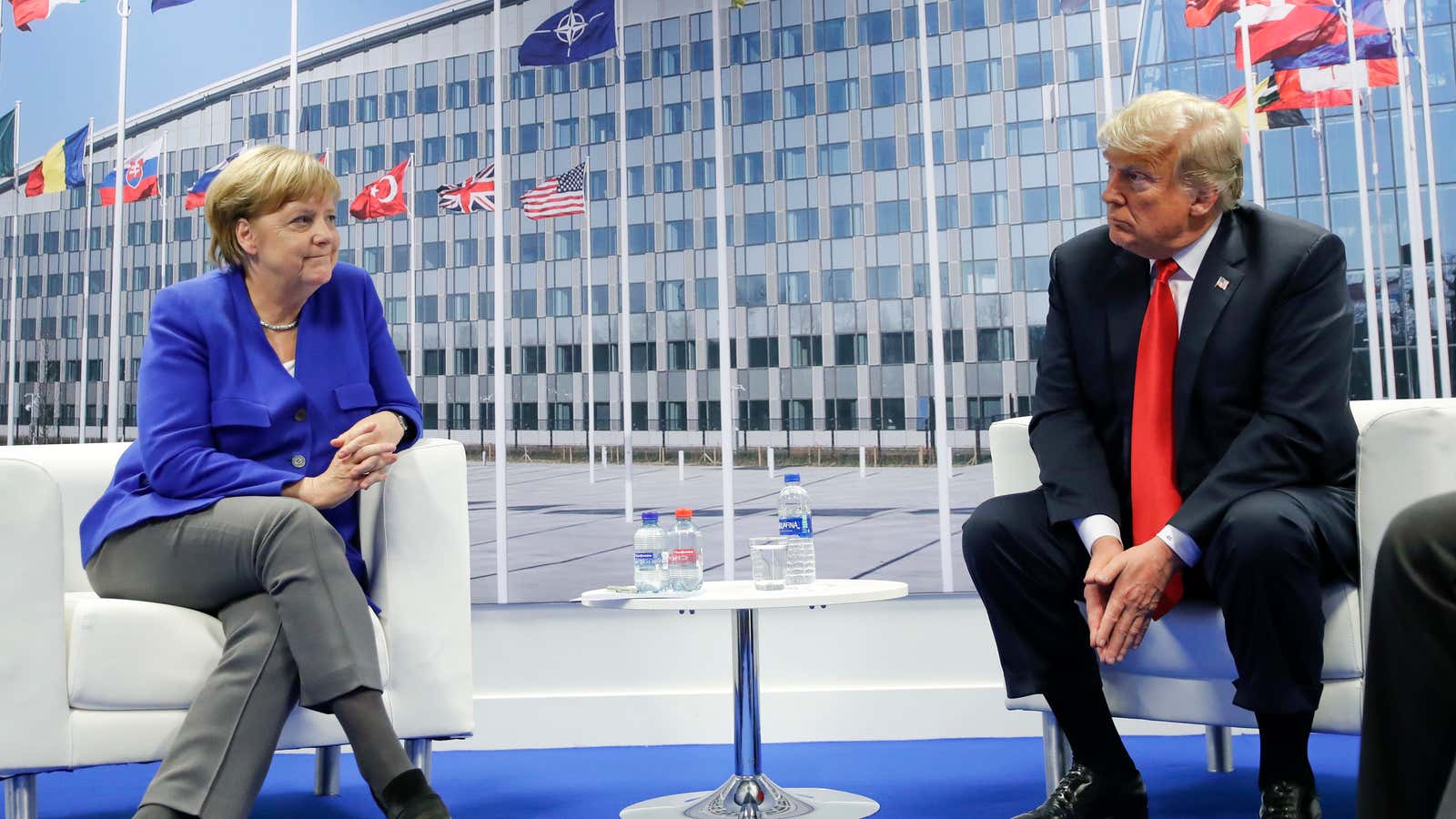Unlike the mutual respect and affection that marked the relationship between former US president Barack Obama and Angela Merkel, Donald Trump’s dislike of the German chancellor has been apparent from the start of his term.
Merkel and Trump’s leadership styles are poles apart: the German chancellor believes in unity, analysis, and compromise, while Trump likes to smash the status quo, belittle others, and create disharmony.
Out of all EU countries, however, Trump has singled out the EU’s largest economy for the bulk of his abuse, slamming everything from country’s trade surplus, and Merkel’s refugee policy (tweeting false statistics about German crime rates), to its car industry and its contributions to NATO’s coffers.
This week at the NATO summit in Brussels, Trump had a new axe to grind with Germany, saying it was a “captive of Russia” because of a planned gas pipeline between the two countries. Merkel responded that she’d had first-hand experience of living in East Germany when it was actually controlled by the Soviet Union. That, for Merkel, was a pointed comeback.
Sigmar Gabriel, who served as vice chancellor and foreign minister under Merkel, says it’s time for Berlin to take a much tougher line with the US president.
“Any attempt to accommodate him, any ingratiation, only allows him to go one step further,” Gabriel said in an interview with Der Spiegel (link in German). “Trump only recognizes strength. So we have to show him that we are strong.”
Social democrat Gabriel said that Trump “gives the North Korean dictator a guarantee of survival and at the same time wants a regime change in Germany.”
“This president does not care about the West,” he added. “He wants a following, not a partnership.”
Some political analysts believe Trump’s antipathy towards Merkel is not personal but stems from a desire to weaken Germany and create cracks in EU solidarity. German politicians have been quick to close ranks around Merkel and speak out against the US president’s latest salvo about Russian-gas reliance.
Christian Mölling from the German Council on Foreign Relations says that Trump’s complaints about NATO is part of a larger strategy: “NATO is only a playground for the much larger regulatory and ideological conflict between the US government and many European governments and the EU.”
“He sees Germany as the entry point to try to crack the European Union,” Josef Janning from the European Council on Foreign Relations told Deutsche Welle. “Because if you want to crack a pack, you attack the alpha animal.”
